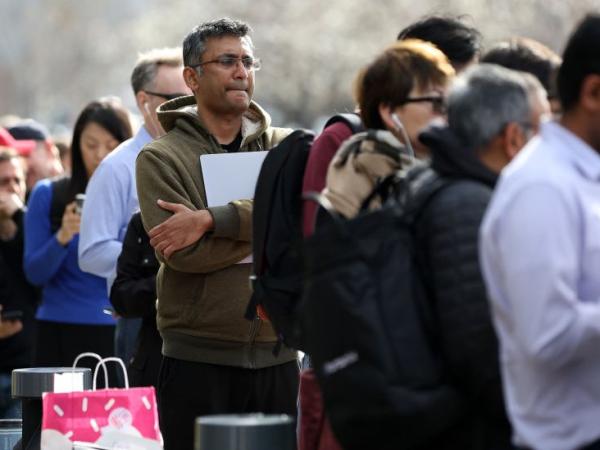The extraordinary measures taken by the US Federal Reserve with the support of the Joe Biden government to bail out depositors at Silicon Valley Bank (SVB) and Signature Bank open a new chapter in the country’s banking history.
The unprecedented step that the US authorities took last week was to rescue all the clients of these banks regardless of the amount of their deposits, something that was not contemplated in the current regulation, which insures deposits up to US$250,000.
In the case of the SVB, which represented the biggest drop for a bank since the Great Recession of 2008, almost 90% of its clients were technology companies with deposits of more than US$250,000.
But faced with the possibility of a bank run that had the potential to infect the rest of the system, the authorities decided to extend the protection to all depositors, whether they had a single dollar or a million in their account.
In addition, US regulators created a new lending program so that troubled banks can use some of their financial assets as a means of obtaining a loan from the Federal Reserve.
It essentially works as a backup to ensure that banks can meet the needs of their depositors.
“For now you need the fire brigade,” Javier Díaz-Giménez, an economics professor at the IESE Business School in Spain, tells BBC Mundo.
What is not very clear, he adds, is what will happen tomorrow when another bank has the same problem.
“This episode is going to change everything. This is a turning point, a crucial moment for banking regulations and supervision of small and medium-sized banks.”
“Here there has been a supervision failure that seems serious to me,” says Díaz-Giménez.
Those doubts about what will happen are shared by many economists. Among them Nicolas Véron, Senior Research Fellow at the Peterson Institute for International Economics and the Bruegel Think Tank.
“(With these interventions) we are facing a new system and, for now, it is very difficult to know what consequences it will have.”
After the rescue of all the clients of the two banks, the debate on the “moral hazard” that this measure supposes has arisen.
In economics, moral hazard occurs when people dare to make bolder decisions because they know someone will protect them.
And in this case, moral hazard enters the picture when the authorities decide to bail out all the depositors of the two troubled banks.
The signal that the market receives is that it is not so serious that they are walking a tightrope.
A bit like the doctor telling you not to worry because he will always be there to heal you and that gives you more confidence to expose yourself to danger.
The debate is to what extent that moral hazard is really important given the current circumstances.
Because seen from another perspective, there was also the alternative that regulators let banks fall without guaranteeing deposits to their customers.
But that could have come at a gigantic cost if the panic had spread.
“The new system could generate a bit of moral hazard, but we don’t really know, because it will depend a lot on the supervision of the banks in the future,” says Véron in dialogue with BBC Mundo.
In any case, he adds, “the fact that there is some moral hazard does not mean that the world is going to end tomorrow. We have to see what happens.”
For some, maintaining the stability of the banking system, whatever it may be, is essential in an emergency situation like the one the United States has experienced in recent days.
Even more so when the SVB and the Signature bank received a third bailout, although this time the mechanism was different.
Big US banks on Thursday bailed out another bank that was in danger of bankruptcy, the First Republic Bank, injecting it with $30 billion.
This comes as concerns about the financial sector have spread globally, raising fears about a possible global banking crisis, especially when Credit Suisse bank had to be acquired this weekend after intense negotiations by another Swiss bank, UBS, for US$3.240 million.
Hung Tran, a senior fellow at the Atlantic Council’s Center for Geoeconomics in the United States, argues that in the short term, protecting SVB’s large depositors “was a necessary and justified bailout to avoid a possible banking crisis, imposing huge costs on All society”.
However, in the long term, “the bailout reinforces the problem of moral hazard, weakening market discipline and setting the stage for future crises,” the specialist in money and capital markets tells BBC Mundo.
“This represents a cost for all citizens,” he adds, although the bailout was not financed with taxpayer money.
The point is that by insuring all deposits to make the system more stable, Tran explains, “all banks and their customers will have to pay higher deposit insurance premiums.”
On this point, says Díaz-Giménez in dialogue with BBC Mundo, “the stability of the banking system is not free.”
Ultimately, he maintains, if banks are better regulated and supervised, and are required to have more demanding capital buffers to face crises, that comes at a price.
Remember that you can receive notifications from BBC Mundo. Download the new version of our app and activate them so you don’t miss out on our best content.
















